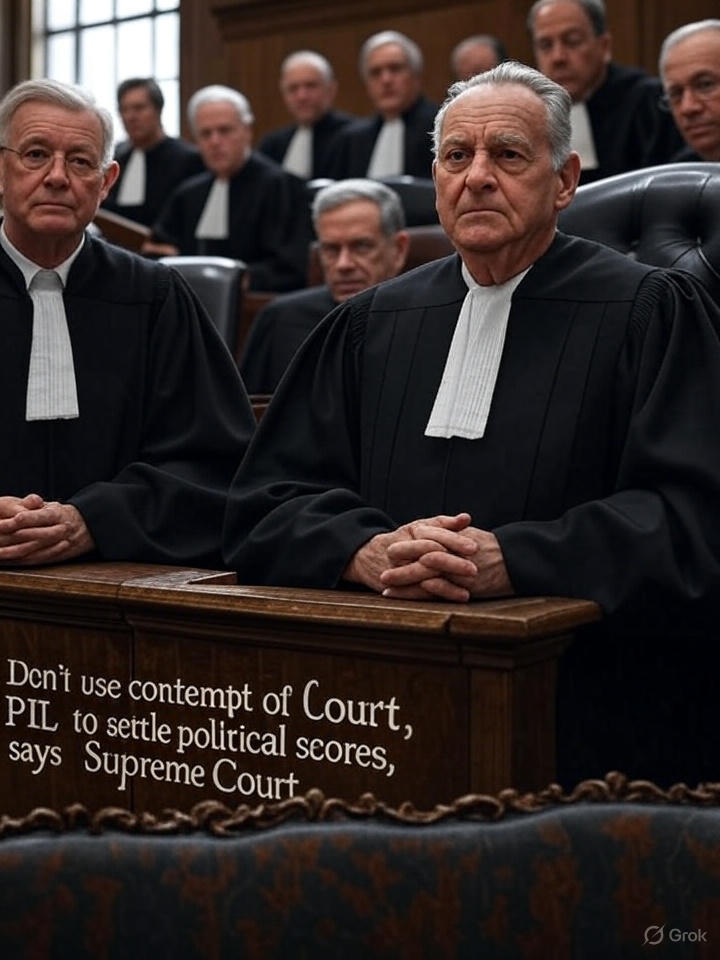Why in the news?
The honourable Supreme Court of India has refused to entertain a contempt petition which was related to the appointment of the Director General of Police (DGP) in the state of Jharkhand while emphasizing that the courts cannot be used as an instrument or puppet to settle political disputes.
Plea before court
The plea was moved by the BJP leader Babulal Marandi as a Public Interest Litigations (PIL) in the honourable Supreme Court while seeking initiation of contempt of court proceedings against the Jharkhand government for the reason being constituting its own committee for shortlisting names for filling up the post of chief of police force in violation of directions issued by the apex court. The petitioner argued beofe the court through his counsel Senior Advocate Sankaranarayanan at least seven states currently have acting DGPs in violation of the court order passed in the Prakash Singh Judgement and its subsequent orders.
How did the court approach the matter?
The plea was rejected to be heard by the bench of Chief Justice of India B.R Gavai and Justices K Vinod Chandran and NV Anjaria heavily criticized over the use of contempt of court jurisdiction and public interest litigation petitions by the political rivals to settle their political battles. “In the Jharkhand case, we don’t want contempt jurisdiction to be used to settle political scores. If you have a problem with a particular appointment, go to the Central Administrative Tribunal. But settle your political scores in front of the electorate,” the bench said.
The bench stated that if an officer has been unlawfully denied or maybe superseded the appointment, then such individual concerned may approach the Central Administrative Tribunal (CAT) or the High Court. While hearing the plea, the Chief Justice of India declined to hear the plea while stating the most that can be done was that the high will establish special courts to settle the same. The court, furthermore,declined to entertain a separate contempt plea against the Chief Secretary of Jharkhand, where the petition alleged that state rules had been framed to protect one Mr Anurag Gupta and raised grievances over the removal of Mr Ajay Singh from his post.
It clarified that if a person is aggrieved by the state’s order of removal or denial of a post, such an officer can seek appropriate legal remedies like approaching the CAT pr Hight Courts. The bench reiterated that while the Public Interest Litigation (PIL) jurisdiction was created to address genuine grievances, it “cannot be permitted to settle scores” and therefore asked the parties to settle their scores before election while rejecting the plea.The Chief Justice questioned if the Supreme Court should be monitoring such appointments at all, asking, “Do we possess expertise to monitor all these issues?” The bench suggested that High Courts could be asked to set up special benches to oversee compliance with earlier directions.
Author’s Information
Mansi, a third year law student currently studying at VIPS-TC under Guru Gobind Indraprastha University with a growing interest for legal research. She’s passionate about criminal justice, family law and advocacy for rights of women and children.

